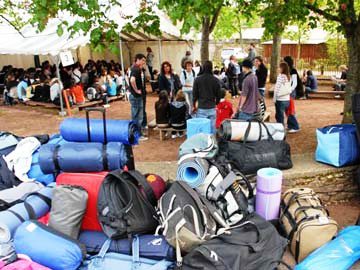
This summer, some 100,000 young people from around the world –- mostly between the age of 15 and 30 – will have gathered outside a village in the middle of France, 3,000-4,000 at a time for a week of Christian retreat.
The summer-long event is a joint Catholic-Protestant summer camp that has grown in popularity over the last half-century. Kids come from all across Europe. The staff is Catholic, Lutheran and Evangelical. The focus is on praising God and studying the Bible.
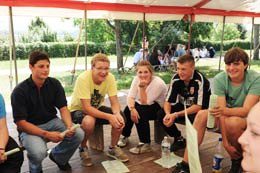
“At a time when church attendance is falling in western Europe and religious leaders fret about their ability to attract young people, why are young believers flocking in such vast numbers to a monastery in rural Burgundy?” asks the British newspaper, the Independent. “What is it that this event offers the teen spirit?
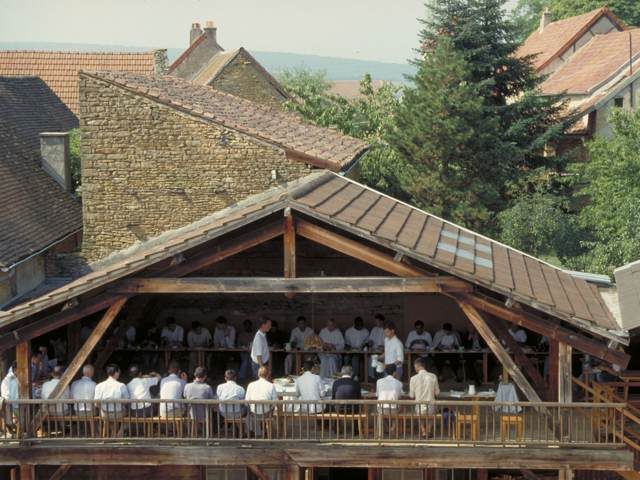
“So many young people were leaving the church – and here, people were coming,” says a camp official, a Catholic monk who is known as Brother David. “It’s important we support their search and give them a place where they really can go. It’s not to tell them what they should or should not do, it’s to let them have that time of meeting with themselves, with others, and with Christ.”
Campers have been arriving at the camp since June. There, they pitch tents, strike up friendships, enjoy plenty of music, and they’ll continue to come until September.
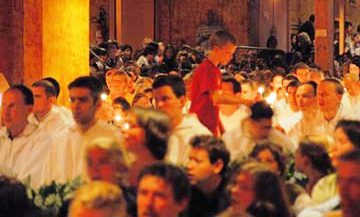
The event is called Communauté de Taizé, named after the small village of Taizé near the site.
Supporting it are over 100 monks, who live together very simply, in a life devoted to prayer, singing and silence. Drawn from over 30 different countries, the community is ecumenical, with Catholics and Protestants worshipping together.
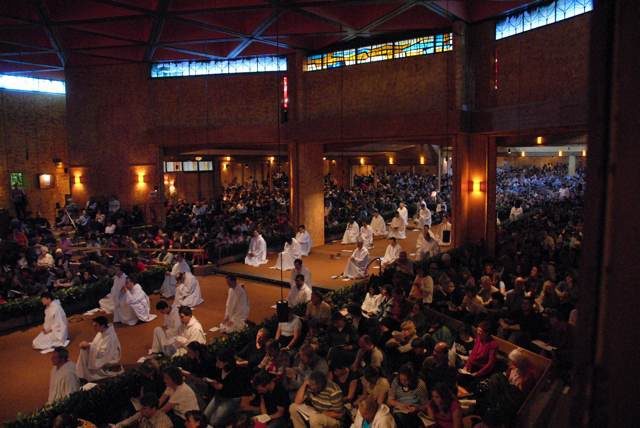
And, even more unexpectedly, since the end of the 50s, Taizé has been attracting young people in ever larger numbers, and from ever more far-flung destinations. Teenagers and young adults make the pilgrimage, usually for a week, joining the brothers in prayer three times a day, attending Bible groups and helping out with chores. During the summer months, there will be a population of 3,000 to 4,000 at any one time, drawn from about 70 different countries, camping or staying in basic barracks, very cheaply (it’s just eight euros a night for bed and board).

